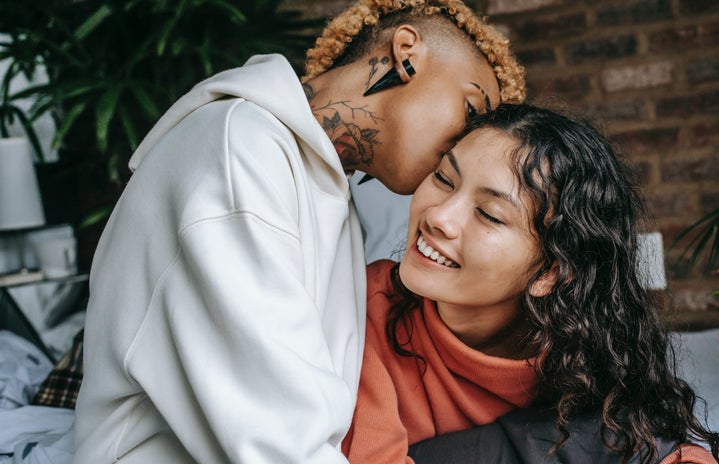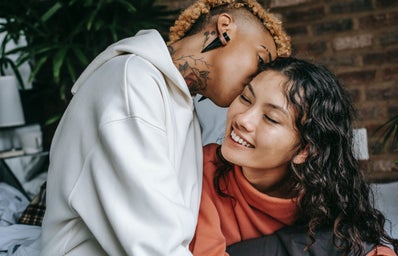With, yet another, TikTok trend plaguing your ‘For You’ page, we break down the newest relationship theory and how it could apply to you and your loved ones.
We’ve all seen a million different relationship trends on our timeline, from the ‘Olive Theory’ – whereby your compatibility is determined if one of you likes olives and the other does not – to the ‘Orange Peel Theory,’ questioning if your partner would peel an orange for you? The ever-growing prominence of the idea that ‘if he wanted to, he would’ and seeking value in your relationships (both romantic and platonic) has spread like wildfire, albeit in an unconventional way.
Viewing your relationship(s) through a cute trope has been commonplace since long before the internet began, with many women dreaming of putting themselves into Elizabeth Bennet’s shoes, wistfully hoping for their brooding Mr Darcy to appear. However, with the short-video sharing platform TikTok amassing over 1 billion active monthly users, it’s no surprise that this is where most trends spawn in 2024.
The Black Cat and Golden Retriever relationship theory is very simple: you and your loved ones will fall into opposing categories.
The ‘black cat’ of your duo is introverted, relaxed and reserved. They are said to be fiercely independent and are not the ones to do the chasing as they keep themselves to themselves.
The ‘golden retriever’ of this dynamic is far more extroverted – highly social, sensitive and energetic. It is generally agreed that they are enthusiastic about spending time with their partner, no matter what they’re doing.
There are also many emerging variations of this dynamic, from the ‘orange cat partner,’ where they are clumsy and supremely confident, but have the support of their ‘german shepherd’ to keep the situation under control. However, why have these tropes become so popular? What is the appeal of these specific labels and why are they so widely spread?
Part of the appeal is its simplicity. Being able to simply compare you and your loved ones to a silly little TikTok trend is super easy, and the whole idea is super self-explanatory. It’s straightforward to explain to your friends if they’ve, surprisingly, not seen it yet.
Also, part of the appeal is how applicable it is to so many relationships. We’ve all got that one excitable friend, who we’ve definitely seen practically bouncing off the walls at the mere suggestion of grabbing a coffee or window-shopping. It’s likely that we also know someone who would much rather hang out in a chill environment and maybe grab a few drinks with just the two of you – it’s that easy.
Many celebrity couples have been framed in this way – comparing K-pop idols, TV show characters and even Twitch streamers to the trope.
Its lack of gendered associations is also massively beneficial to its success. It’s open to interpretation and can apply to any relationship: queer, gay, lesbian, platonic and romantic. That’s the beauty of it! Queer people oh so frequently have to carve out their own trends and safe spaces, and it is uncommon for such a trend to be as widely applicable as this one, making it a wholesome little joke between yourself and (millions of) others. No one is on the receiving end of a sly joke, and both sides of the trend can be equally sweet and chaotic.
Have you shared this trend with your loved ones? Why not try it out?


